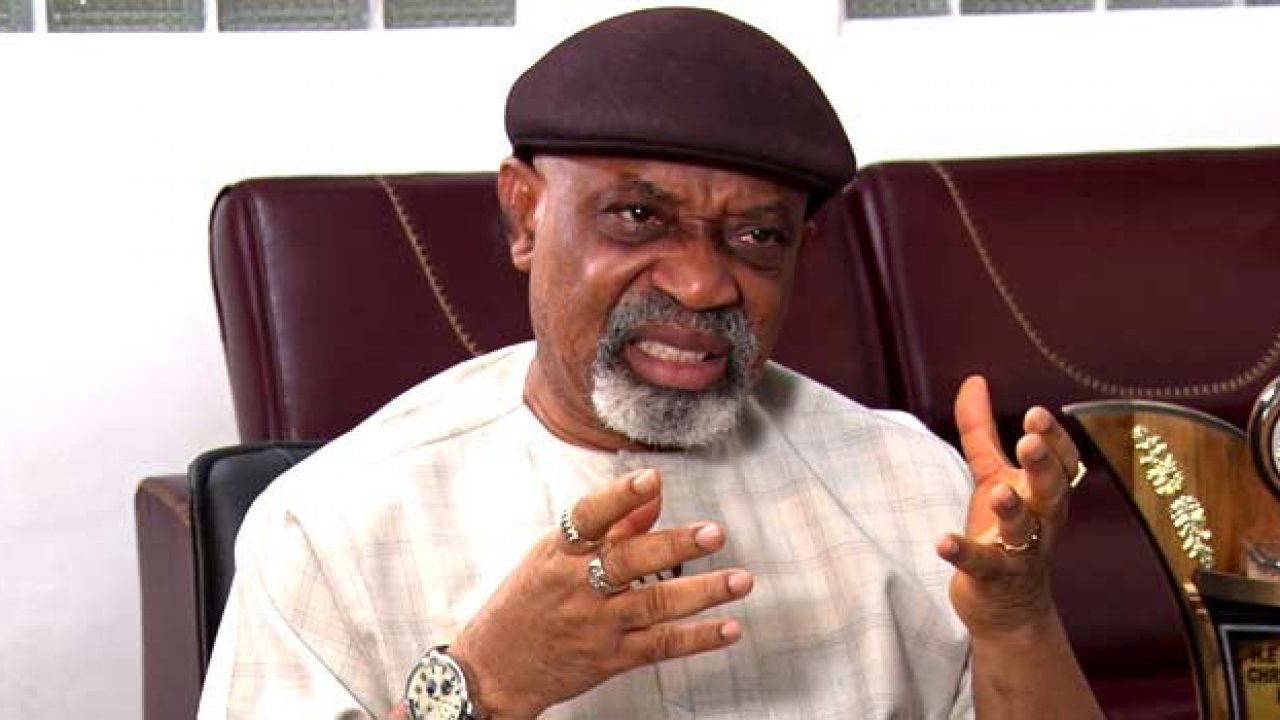The Federal Government is mulling the introduction of mandatory training for newly elected labour leaders. The training will take place at the National Institute of Labour Studies (NILS), Ilorin.

The Minister of Labour and Employment, Sen. Chris Ngige, who disclosed this at the 2022 Budget Defence of the ministry at the House of Representatives on Wednesday in Abuja, added that this would address the incessant labour crises in the country.

Ngige said this in a statement signed by Mr Charles Akpan, Deputy Director, Press and Public Relations in the ministry.
According to Ngige, the proposed training will equip the labour leaders with the knowledge of labour laws and the International Labour Organisation (ILO) Conventions, in order to curb the incessant industrial disputes in the country.
The minister also noted that the ministry has made provision for the establishment of Rapid Response Labour Desk Offices across the 36 states to help nip in the bud some of the industrial crises.
He said that labour crises often occur because labour leaders lacked proper understanding of labour laws and ILO principles.
“One of the problems is that labour leaders are not in tune with labour laws. They don’t know when they overstep their rights. Some of them don’t even know that before you embark on an industrial action, you will give an official notice.
“You start with negotiating with your employer. And when you finish and want to go on strike out of dissatisfaction, you notify the Labour Ministry. You must give a mandatory notice of strike.
“For some categories of staff, it is 15 days while for people on essential duties, such as electricity, telecommunications, health, water and gas supply, it is 21 days.
“Some of them also do not read the ILO principles on strike to know that in emergencies, like the pandemic we are experiencing now, you are prohibited from going on strike. No matter what your grievances are, you must leave them till the emergencies end.
“But if you insist and go on strike, your employer is empowered to replace you. It is in the principles of strike of the ILO, the highest body in labour relations. It also permits the employer to withdraw salaries and other emoluments for the period you are away from your duty post,” he said.
Ngige noted that in the last management meeting of his ministry, they agreed that before accepting any election result from any of the labour unions, the new labour leaders should go to the NILS in Ilorin for a minimum of two weeks.
He added that this would enable the newly elected leaders to get some proper induction on labour relations before assuming office.
“If their organisations can afford it, they could do the training for one or two months and continue refresher courses in NILS from time to time.
“The NLC leadership is very articulate and educated but the problem is their branch unions and because they are their affiliates, they are afraid to stop them from going on strike.
“We are doing what we are supposed to be doing and I am glad you recognise that we are overworked. We have two ministries where these strikes are incessant.
“One is the Federal Ministry of Education where you have university workers, both academics and non- academics who are in a battle for superiority.
“Two is the Federal Ministry of Health where we have the doctors and the other health workers also flexing muscles. We are trying to see how we can forge ahead by making them to understand that they need one another to succeed,”Ngige said.
On the issue of brain drain, Ngige said government could not stop it because “it is an economic situation“.
“The exchange rate is N570 to a dollar and somebody goes out there and gets 2,000 dollars in a month. So, you cannot stop it,” he said.
He said though there was an embargo on employment, the Federal Executive Council (FEC) has given a waiver for employment in health sector to ensure that those who left for greener pastures were replaced.
He however, recommended the bonding of medical workers to ensure that people did not leave the country at will after receiving training for free at public expense.
“Medical education in Nigeria is almost free. Where else in the world is it free? The Presidential Committee on Health should come with a proposal for bonding doctors, nurses, medical laboratory scientists and other health workers, so that they don’t just carry their bags and walk out of their country at will when they were trained at no cost.
“In London, it is 45,000 pounds a session for medical education in cheap universities. If you go to Edinburgh or Oxford, you pay 80,000 dollars.
“If you go to the US, you pay 45,000 dollars but if you go to the Ivy Leagues, you pay 90,000 dollars for only tuition, excluding lodging. You do it for six years. So, people in America take loans.
“We can make provisions for loans and you pay back. If government will train you for free, we should bond you. You serve the country for nine years before you go anywhere,” he said




















